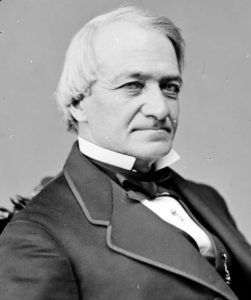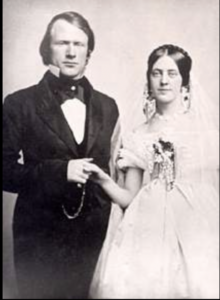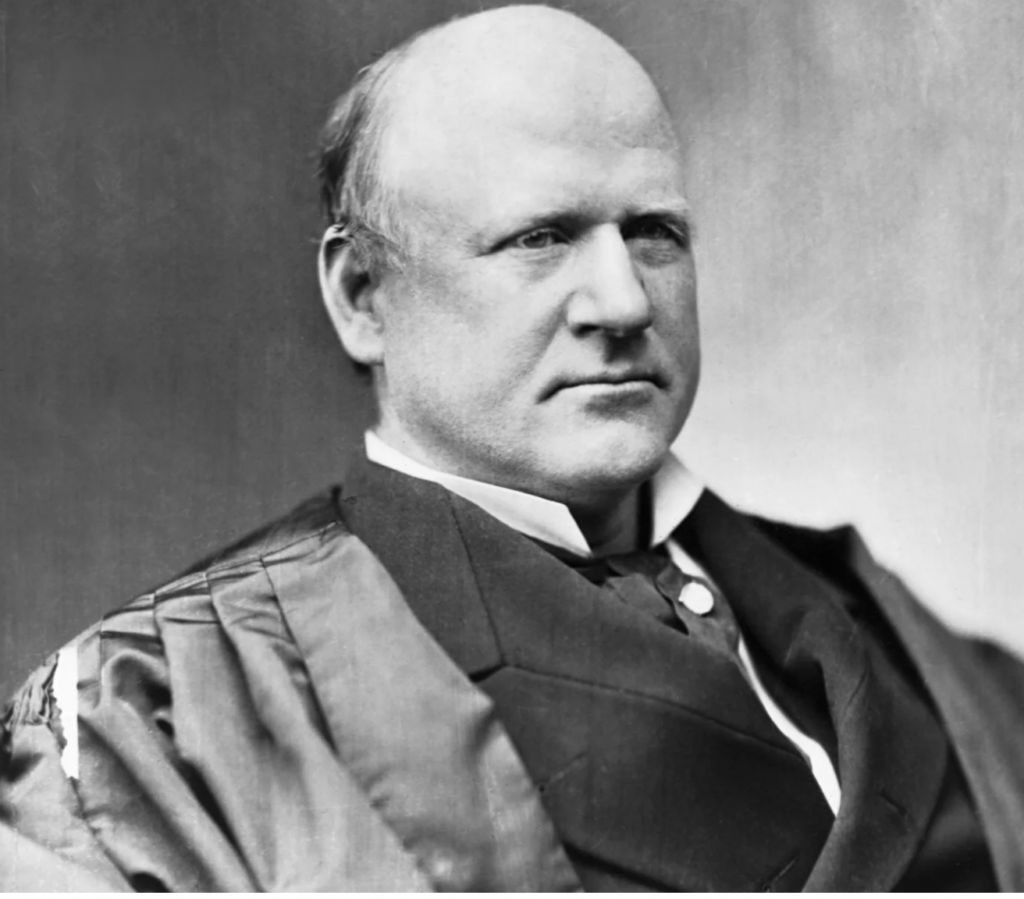“The one positive thing that can be said of this long train of decisions is that, as Rudolphe Desdunes, a leader of the New Orleans Citizens’ Committee, wrote of Plessy, ‘our people had the satisfaction of putting the American government’s back to the wall,’ forcing it to make plain the depth of the nation’s commitment to Jim Crow.” –Foner, Second Founding, p. 167
Key Terms
- “badges and incidents” of slavery (13th)
- state action and public rights (14th)
- corporate personhood (14th)
- “New Departure” (14th)
- “right to vote” (15th)
- Lodge’s Force Bill (15th)
Early Reconstruction Cases
- Blyew v. US (1872) –overturns convictions of KY murderers on federalism grounds concerning witness rules
- Slaughterhouse Cases (1873) –upholds LA business regulation on federalism grounds, limiting “privileges or immunities” clause
- Bradwell v. Illinois (1873) –upholds ban on female attorneys in IL (Bradley dissents in Slaughterhouse but votes with majority in Bradwell)
- US v. Cruikshank (1876) –overturns convictions following Colfax Massacre (1873) in LA on federalism grounds
- US v. Reese (1876) –overturns convictions under Enforcement Acts in KY on federalism grounds
Some Supreme Court decisions in 1870s and 1880s upheld equal protection for jury laws and protected black voting rights but they were the exception, not the rule
Civil Rights Cases (1883)
- United States v. Singleton (aka “the prejudiced doorkeeper”)
- United States v. Stanley
- United States v. Ryan
- United States v. Nichols
- Robinson and wife v. Memphis & Charleston R.R. Co.
In November 1879, William R. Davis, black newspaperman, and his mixed race girlfriend were denied entry to the Grand Opera House in New York by doorkeeper Samuel Singleton: “these tickets are no good.”
- Sponsored by Sen. Charles Sumner (R-MA)
- Following landslide Democratic victories in the 1874 midterm elections and during the lame duck session of Congress
- Supported tirelessly by black congressmen such as Rep. James Rapier (R-AL), who said:
“Every day my life and property are exposed, are left to the mercy of others, and will be so long as every hotel-keeper, railroad conductor, and steamboat captain can refuse me with impunity … After all, this question resolves itself into this: either I am a man or I am not a man.”
Majority Opinion by Justice Joseph Bradley:
When a man has emerged from slavery, and, by the aid of beneficent legislation, has shaken off the inseparable concomitants of that state, there must be some stage in the progress of his elevation when he takes the rank of a mere citizen and ceases to be the special favorite of the laws, and when his rights as a citizen or a man are to be protected in the ordinary modes by which other men’s rights are protected. There were thousands of free colored people in this country before the abolition of slavery, enjoying all the essential rights of life, liberty and property the same as white citizens, yet no one at that time thought that it was any invasion of his personal status as a freeman because he was not admitted to all the privileges enjoyed by white citizens, or because he was subjected to discriminations in the enjoyment of accommodations in inns, public conveyances and places of amusement. Mere discriminations on account of race or color were not regarded as badges of slavery.
Dissenting opinion by Justice John Marshall Harlan
Today it is the colored race which is denied, by corporations and individuals wielding public authority, rights fundamental in their freedom and citizenship. At some future time, it may be that some other race will fall under the ban of race discrimination. If the constitutional amendments be enforced according to the intent with which, as I conceive, they were adopted, there cannot be, in this republic, any class of human beings in practical subjection to another class with power in the latter to dole out to the former just such privileges as they may choose to grant.
What is the story of the Taney inkstand and its connection to Harlan’s dissent?
“…equal but separate…” (1890 Separate Car Law)
- Organizers include Louis A. Martinet and Rudolphe L. Desdunes and other members of the Citizens’ Committee to Test the Separate Car Law (Louisiana 1890)
- Albion W. Tourgee, then living in New York, was a lead attorney for the plaintiffs
- Homer Plessy (no known photograph) became the plaintiff for the intrastate test case in June 1892
- John H. Ferguson was the district judge in New Orleans
- The Supreme Court ruled 7-1 upholding the constitutionality of the Louisiana railroad car segregation law
- John Marshall Harlan dissented:
But in view of the constitution, in the eye of the law, there is in the country no superior, dominant, ruling class of citizens. There is no caste here. Our constitution is color-blind, and neither knows nor tolerates classes among citizens. In respect of civil rights, all citizens are equal before the law. The humblest is the peer of the most powerful. The law regards man as man and takes no account of his surroundings, or of his color when his civil rights as guaranteed by the supreme law of the land are involved.



